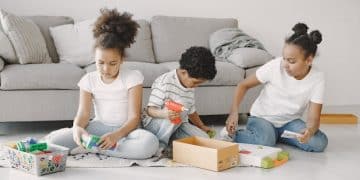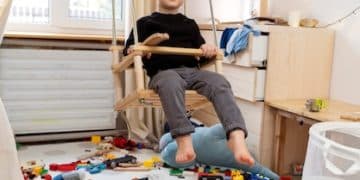Gift Guide: Top 7 Gifts for Kids with Special Needs in 2025
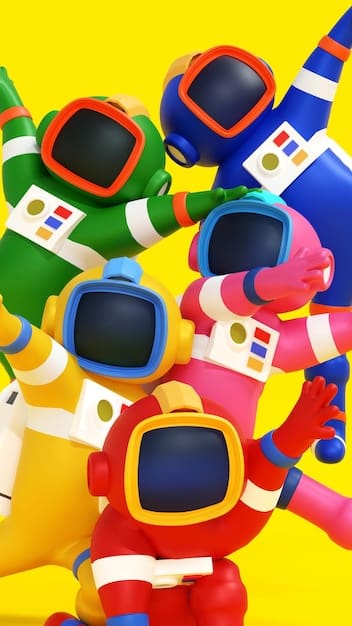
Discover the top 7 gifts for kids with special needs in 2025, carefully selected to promote development, engagement, and joy, addressing sensory, fine motor, and cognitive skills.
Finding the perfect gift for a child is always a special moment, but it can present unique challenges when considering the specific needs and abilities of children with special needs. This Gift Guide: Top 7 Gifts for Kids with Special Needs in 2025 aims to simplify this process by offering thoughtfully curated suggestions that consider various developmental areas.
Understanding the Importance of Tailored Gifts
Selecting gifts for children with special needs goes beyond simply picking out a toy; it’s about choosing items that foster growth, independence, and happiness. These gifts should align with the child’s individual strengths, challenges, and interests.
Considering Sensory Needs
Many children with special needs have sensory sensitivities. Gifts that cater to these needs can be incredibly beneficial.
- Weighted blankets: Provide a calming effect, reducing anxiety and promoting relaxation.
- Sensory bins: Offer tactile exploration and can be customized with various textures and materials.
- Noise-canceling headphones: Help reduce auditory overload in noisy environments.
Promoting Fine Motor Skills
Gifts that encourage the development of fine motor skills are essential for many children with special needs.
- Adaptive art supplies: Offer easier grip and control for children with limited hand strength.
- Building blocks: Enhance hand-eye coordination and problem-solving abilities.
- Lacing beads: Improve dexterity and concentration skills.
Choosing gifts tailored to specific needs ensures that the child receives something truly valuable and enjoyable.
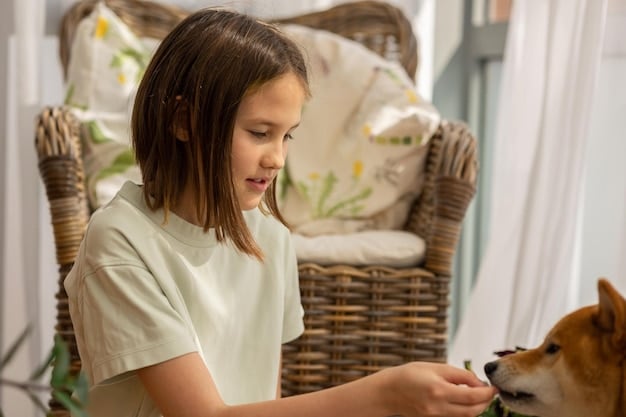
Top 7 Gifts for Kids with Special Needs in 2025
In 2025, the market offers a wide array of innovative and practical gifts designed specifically for children with special needs. Here are seven of the best options.
1. Sensory Subscription Box
A sensory subscription box delivers a curated collection of sensory toys and activities right to your doorstep. These boxes are often tailored to the child’s specific needs and interests, providing ongoing stimulation and engagement.
2. Adaptive Gaming Controller
For children who love video games but struggle with traditional controllers, an adaptive gaming controller can be a game-changer. These controllers can be customized with different buttons, switches, and joysticks to accommodate various physical limitations.
3. Weighted Utensils
Weighted utensils can make mealtime easier for children with tremors or limited motor control. The added weight provides stability and reduces spills.
4. Visual Timer
A visual timer helps children understand the passage of time. This is particularly useful for children with autism or ADHD who may struggle with abstract concepts of time.
5. Tactile Learning Tools
Tactile learning tools engage multiple senses, making learning more accessible and enjoyable. Examples include textured alphabet blocks, 3D puzzles, and tactile maps.
6. Noise Reduction Headphones
Create a quiet space for focusing with these noise reduction headphones from brands such as: Baby Banz, Dr. Meter and more!
7. Fidget Toys
Fidget toys, like a fidget spinner or fidget cube, can help children with ADHD or anxiety stay focused and calm. They provide a discreet outlet for excess energy.
Selecting the right gift involves careful consideration of the child’s unique needs and preferences.
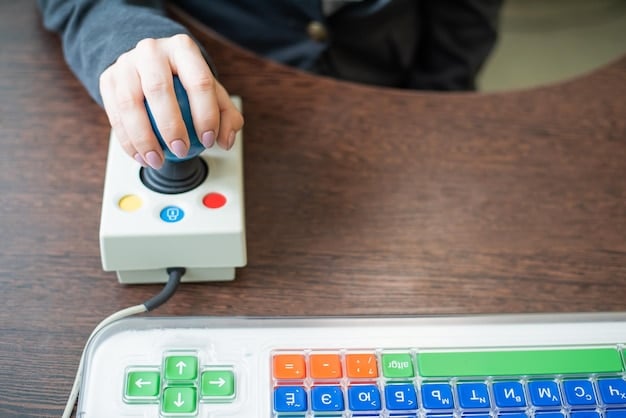
How to Choose the Right Gift
When selecting a gift for a child with special needs, several factors should be taken into consideration to ensure it’s both appropriate and beneficial.
Assess the Child’s Needs and Abilities
Before choosing a gift, take the time to understand the child’s specific needs, challenges, and strengths. Consult with parents, therapists, or educators to gain valuable insights.
Consider the Child’s Interests
Choose gifts that align with the child’s interests and passions. This will make the gift more engaging and enjoyable.
Prioritize Safety
Ensure that the gift is safe and age-appropriate. Avoid items with small parts that could pose a choking hazard.
Read Reviews and Seek Recommendations
Before making a purchase, read reviews from other parents and caregivers who have purchased the same item. Seek recommendations from experts in the field.
A well-chosen gift can make a significant positive impact on a child’s development and well-being.
Personalizing the Gift-Giving Experience
Adding a personal touch to the gift-giving experience can make it even more meaningful for both the child and the giver.
Include a Handwritten Card
A handwritten card with a personalized message adds a heartfelt touch to any gift.
Wrap the Gift Creatively
Make the gift-opening experience more exciting by wrapping the gift in a creative and engaging way. Use colorful paper, ribbons, and stickers.
Present the Gift with Enthusiasm
When presenting the gift, show genuine enthusiasm and excitement. This will make the child feel special and appreciated.
Personalizing the gift-giving experience demonstrates thoughtfulness and care.
The Benefits of Adaptive Toys and Tools
Adaptive toys and tools are designed to meet the unique needs of children with disabilities. They offer numerous benefits that traditional toys may not provide.
Promoting Independence
Adaptive toys and tools can help children develop independence by enabling them to participate in activities that they might otherwise find challenging.
Enhancing Cognitive Development
Many adaptive toys and tools are designed to stimulate cognitive development and problem-solving skills.
Improving Physical Skills
Adaptive toys and tools can help children improve their physical skills, such as fine motor coordination and hand-eye coordination.
Boosting Self-Esteem
When children are able to successfully engage with adaptive toys and tools, it can boost their self-esteem and confidence.
Adaptive toys and tools play a vital role in the development and well-being of children with special needs.
Where to Find the Best Gifts
There are several places to find high-quality gifts for children with special needs.
Specialty Toy Stores
Specialty toy stores often carry a wide selection of adaptive toys and tools.
Online Retailers
Online retailers offer a vast array of options, with detailed product descriptions and customer reviews.
Therapy Centers
Therapy centers may sell adaptive toys and tools that are recommended by therapists.


